The New York Times: Voters look past legal problems to give Trump a big victory
Trump’s record-breaking triumph gave the former president an important win in a state that had rejected him eight years ago.
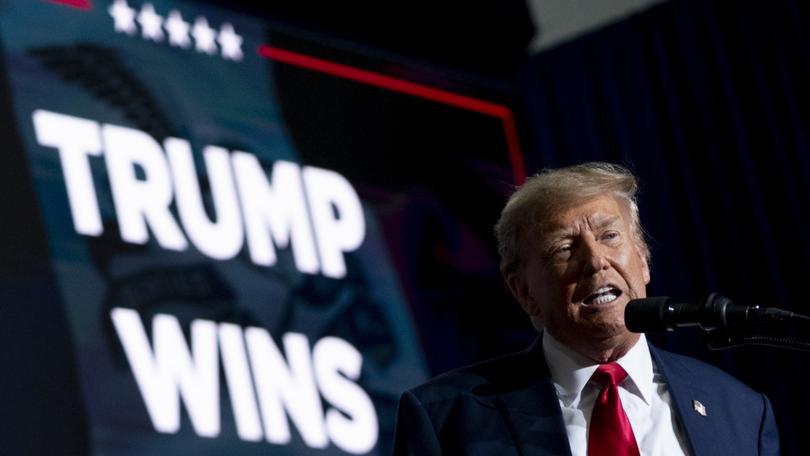
Donald Trump won the Iowa caucuses in a landslide Monday, a crucial first step in his bid to claim the Republican nomination in a third consecutive election as voters looked past his mounting legal jeopardy and embraced his vision of vengeful disruption.
Trump’s record-breaking triumph, called by The Associated Press on Monday night only 31 minutes after the caucuses had begun, gave the former president an important win in a state that had rejected him eight years ago.
But on a bitter cold night, Gov. Ron DeSantis of Florida finished in a distant second place, according to the AP. His narrow edge over Nikki Haley in a state where he had increasingly banked his candidacy could provide him some much-needed money and momentum in the battle for the mantle of Trump’s chief rival.
Sign up to The Nightly's newsletters.
Get the first look at the digital newspaper, curated daily stories and breaking headlines delivered to your inbox.
By continuing you agree to our Terms and Privacy Policy.
With Trump far ahead in most polls, much of the focus heading into the caucuses had been on the race for second, as DeSantis and Haley, a former ambassador to the United Nations, spent as much time and money attacking each other as they did the front-runner. With DeSantis finishing ahead of Haley in Iowa, and her leading him in New Hampshire, the possibility of a two-person race remains elusive for foes of Trump, who fear a split field will ease his path to the nomination.
Even before the Iowa results were in, DeSantis had symbolically decided to fly directly to South Carolina after Iowa instead of to New Hampshire, which votes Jan. 23 and where Haley is making her next stand.
Trump is the first former president in the modern era who has sought to return to the White House. On Monday, he easily exceeded the Republican record of 13 percentage points for the largest victory in a contested caucus. He was close to winning an outright majority of more than 50%, a critical psychological barrier for those in the party still hoping to stop him.
Should Trump ultimately prevail as the nominee, it would set up a historic potential rematch in November with President Joe Biden that could play out on both the campaign trail and in the courtroom.
“I really think this is time now for everybody, our country, to come together,” Trump said in his victory speech, before veering into divisive promises, such as raising deportation levels higher than they have been in decades.
Regardless of what comes next, Trump’s Iowa victory amounts to a remarkable resurrection of a political career that had once appeared in tatters. He was impeached in the final days of his first White House term for his role in inciting the Jan. 6, 2021, riot at the Capitol. His subsequent acquittal by the Senate left open the possibility of this return campaign.
Trump has spent the past three years methodically consolidating power to ready his own restoration. Even his four felony indictments, and his status as the only former U.S. president to face criminal charges, have united many Republicans behind his claims of “election interference” and victimhood at the hands of Democrats and the “deep state.”
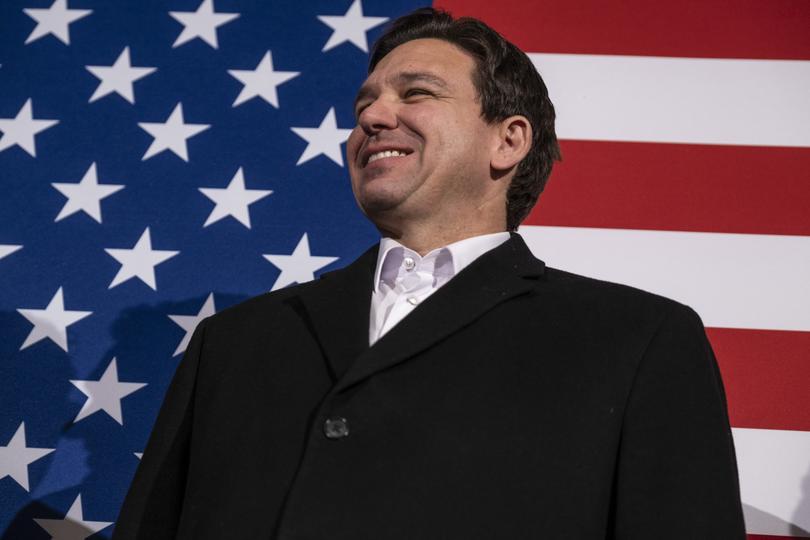
DeSantis had previously predicted victory in the state, but Monday he sold his second-place finish as a success, saying he had overcome “everything but the kitchen sink,” including news organizations declaring Trump the victor before the caucuses had been completed.
“They even called the election before people got the chance to vote,” DeSantis said, later adding, “We’ve got our ticket punched out of Iowa.”
Now, the Republican calendar will turn to New Hampshire, where polling shows Trump is expected to face a strong challenge from Haley in a state where independent voters can also cast ballots. Trump’s campaign and his allied super PAC have already been blanketing that state with anti-Haley advertising, a sign of its competitiveness before the Jan. 23 primary.
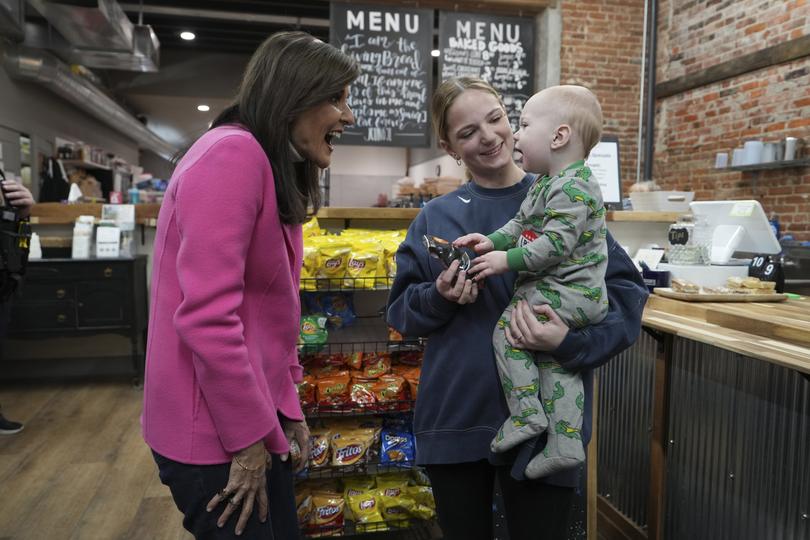
Even with her third-place finish, Haley boldly attempted to look past DeSantis, the candidate who had actually finished ahead of her, declaring, “Iowa made this Republican primary a two-person race.”
DeSantis had entered 2023 as the party’s clear alternative to Trump. But early struggles, both financially and electorally, forced him to retrench and make his stand in Iowa, where he won the backing of the state’s popular Republican governor and a key evangelical network. His super political action committee knocked on more than 935,000 doors statewide.
Even with Trump far ahead, Haley’s allied super PAC spent more than $22 million on attacks against DeSantis just in Iowa, hoping to squash his candidacy in the very first state (the group had spent nothing opposing Trump in Iowa, according to federal records).
Trump’s team believes a string of early victories — first in Iowa, and then in New Hampshire, Nevada and South Carolina — will position him for a blowout on Super Tuesday, all but locking up the nomination by March, when many of the delegates are up for grabs. They worry any early loss could lead to a more protracted fight.
In Iowa, harsh winter conditions had scrambled turnout expectations and preparations for all the campaigns in recent days. First, a blizzard forced a slew of event cancellations. Then, subzero temperatures and a numbing wind chill Monday prompted warnings of “life-threatening cold” from the National Weather Service.
Turnout appeared to be around 110,000 as of late Monday evening — roughly half of what the campaigns had predicted only weeks ago.
Trump’s advantage across the state was striking: He led in cities, suburbs and rural areas alike. Supporters of Trump were animated by his dark portrait of a nation in decline and his apocalyptic rhetoric about wresting a country controlled by the left back from the brink. Trump’s vows to exact retribution on his political enemies have earned warnings from academics and Democrats of a drift toward authoritarianism yet have won cheers from his rapturous crowds.
In many ways, Trump’s victory represented a repudiation of the rituals of campaigning in Iowa, a state that has previously rewarded candidates who expose themselves to up-close scrutiny, submit themselves to tough questioning or visit each of the state’s 99 counties, as DeSantis did.
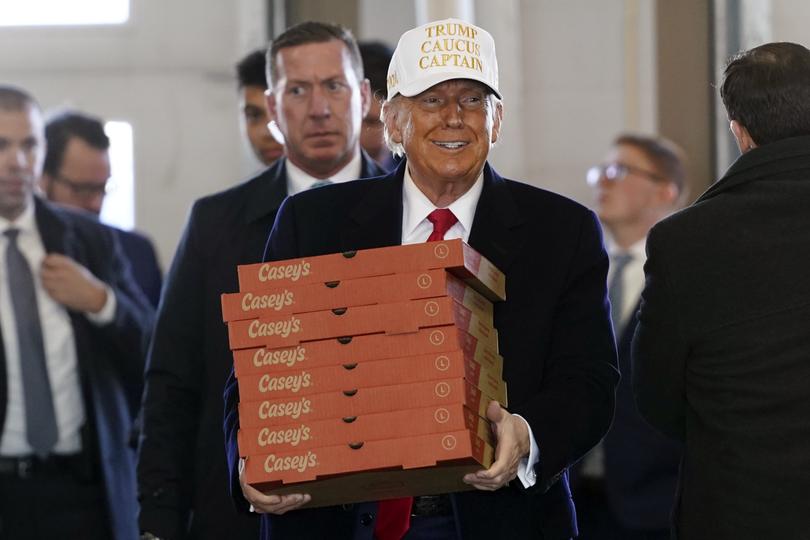
Trump did little of that, visiting only a fraction of the state’s counties and appearing at only a single in-person rally in the final week of the campaign, citing icy conditions for some cancellations. He did indulge in some traditions — stopping by a Casey’s gas station over the weekend to pick up pizza that he then delivered to firefighters. But more often, he leveraged his unique status as a former president to travel in a Secret Service motorcade and command national attention from anywhere, including a courtroom appearance and news conference in New York in the past week.
His approach reflected the increasing nationalization of American politics, where cable news appearances are often as persuasive as meet-and-greets in small towns. Still, Trump, remembering bitterly how his lack of political organization had damaged him in the 2016 caucuses, invested early and heavily in the state, building out a robust staff and recruiting more than 1,800 people as “caucus captains” for the more than 1,600 precincts in the state.
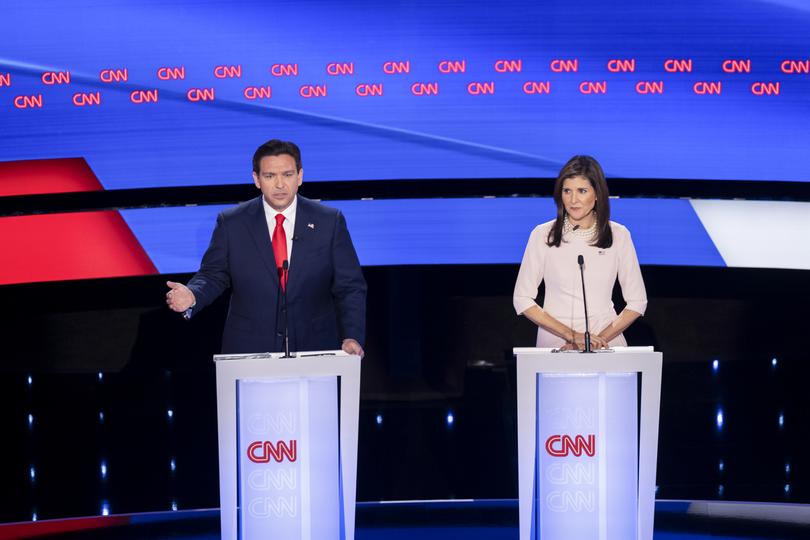
Among Trump’s most meaningful decisions was his refusal to even debate his rivals.
His absence from the primary’s most-watched moments forced his rivals to fight one another and robbed them of any opportunity to dent his lead. And so although Iowa has traditionally played a key role in winnowing the field, that occurred this cycle before the balloting had even begun. Former Vice President Mike Pence, U.S. Sen. Tim Scott and former New Jersey Gov. Chris Christie all bowed out after failing to gain any significant traction. Another former Republican rival, North Dakota Gov. Doug Burgum, endorsed Trump on Sunday.
Vivek Ramaswamy, an entrepreneur who has heavily funded his own run and who has spoken mostly positively about Trump while traveling exhaustively across Iowa, was in a distant fourth, with close to 8% of the vote. He dropped out of the race Monday and endorsed Trump.
“We did not achieve the surprise we wanted to deliver tonight,” Ramaswamy said.
After something of a truce for most of the campaign, Trump and his advisers laced into Ramaswamy in the two days before the caucuses, with the former president’s team seeing him as siphoning off potential votes.
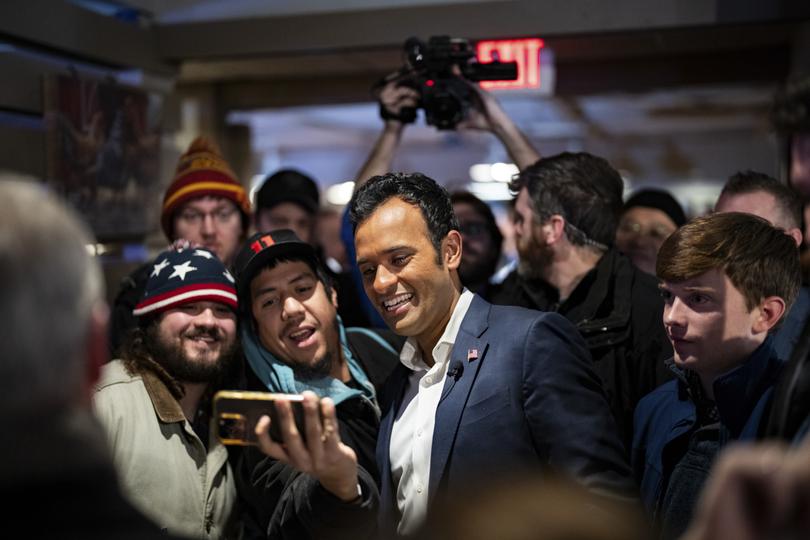
Long before the caucuses, Biden had begun to center his reelection bid on casting Trump as an existential threat to American democracy, citing his predecessor’s refusal to accept the results of the past election and his impeding of the peaceful transfer of power in 2020.
A special counsel appointed by the Justice Department, Jack Smith, has indicted Trump over his role in that postelection period, accusing him of trying to subvert the will of the people. The case could go to trial this year — before the general election.
The election subversion case is only one of four indictments that Trump faced in 2023, along with charges that cover his handling of classified documents, his hush-money payments to an adult film actress during his 2016 campaign and his attempts to reverse the 2020 election results in Georgia.
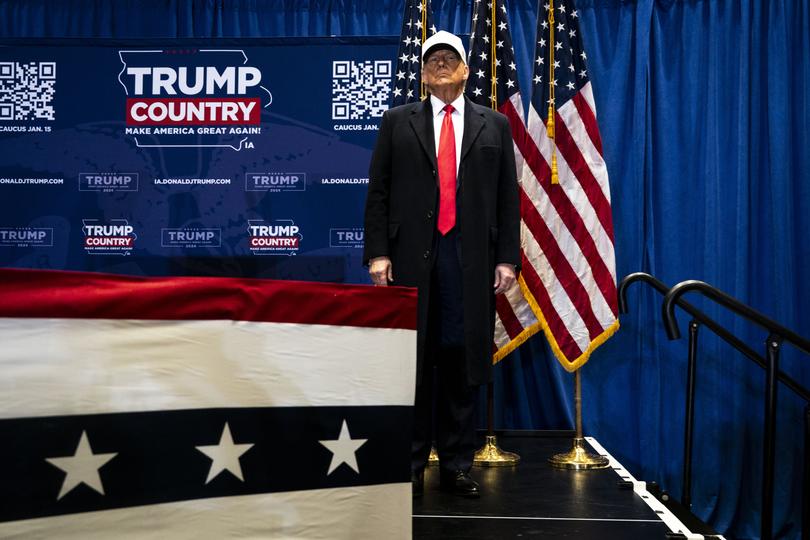
If Trump does become the nominee, the 2024 campaign will have few modern parallels.
He is poised to split his time between the campaign trail and his criminal cases as well as additional civil cases. And soon, the Supreme Court is expected to weigh in on the basic question of whether states can ban Trump from the ballot outright over his role in the Jan. 6 riot. A different case making its way through the federal courts will test Trump’s claim that he should be immune from prosecution.
In her speech Monday, Haley framed the coming contest in New Hampshire and beyond as a choice between her and the possibility of a Trump-Biden rematch.
“America,” she said, “deserves better.”
This article originally appeared in The New York Times.
Originally published on The New York Times
